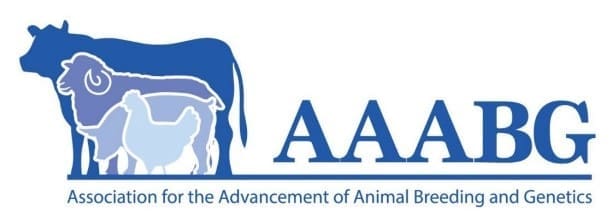ATTENDEES at a recent livestock conference were granted an exclusive opportunity to delve into early Southern Multi Breed Project data, igniting fresh optimism for future fertility EBVs.
Dr Kath Donoghue, a principal investigator for the project, shared her findings at the 25th Association for the Advancement of Animal Breeding and Genetics conference in Perth last week, shedding light on the dynamics between age at puberty, days to calving, and first parity return to oestrus in Australian temperate beef breeds.

Dr Kath Donoghue
“For various reasons genetic improvement for fertility traits in temperate breeds has struggled in recent years, so it’s exciting to be able to trial some new, precise measures of fertility and give industry options because it’s an important area that still needs addressing in the beef industry,” Dr Donoghue said.
The data collection involved monthly ovarian scans of the first cohort of SMB heifers from weaning onwards to identify when an animal commenced cycling, along with recording the days to calving trait. Once females had calved, monthly ovarian scans recommenced to identify when each female returned to oestrus.
One of the key findings highlighted the existence of phenotypic variation in all three traits, presenting an opportunity for future improvements.
Dr Donoghue confirmed some expected results when examining sire means for the three traits, including that sires whose progeny reached puberty at a later age also conceived later and hence calved later in the calving season.
However variation between sires was observed, with some sires having progeny that reached puberty earlier than average but calved later (and hence conceived later) than average. Results also indicated that, in general, sires whose progeny reached puberty at a later age also took longer to return to oestrus after the birth of their first calf.
Dr Donoghue said the nature of the relationship between days to calving and return to oestrus was somewhat unexpected, however, given results from the Repronomics project in Bos indicus breeds.
“We would have expected those that calve earlier in the season to have a quicker turnaround in cycling, so a shorter lactation anestrus. However, we saw the opposite,” she said.
“We saw that those that calve later in the season actually had a quicker turnaround or a shorter lactation anestrus.”
 While presenting this data is another significant milestone in the ongoing SMB project, Dr Donoghue said it was still early days for the project to provide definitive results.
While presenting this data is another significant milestone in the ongoing SMB project, Dr Donoghue said it was still early days for the project to provide definitive results.
“This is all at the phenotypic level for the time being; we don’t have enough records yet to look at genetic variation or to look at genetic relationships,” she said.
“We obviously need more data, and once we finish calving this year, we’ll have another cohort of data to investigate these traits and the relationships between them in temperate cattle.”
As the data gathering for the project continues, Dr Donoghue remains optimistic about the potential of the SMB project to help offer an additional tool for selecting fertility traits at a younger age.
“Currently, producers are limited in this area and essentially have to wait until a female has a calf before they’re able to get any records for fertility,” she said.
“A trait such as age at puberty, which is measured earlier in life than current fertility traits, offers the potential to provide a selection tool for fertility traits at a younger age.”
“The data collected on first lactation anoestrus offers the industry the opportunity to identify those females that exhibit a shorter return to oestrus, with the potential to improve joining rates for the second mating of these females.”
- The Southern Multi Breed project is co-funded by NSW DPI, UNE, MLA and the Commonwealth Government through the MLA Donor Company.



HAVE YOUR SAY